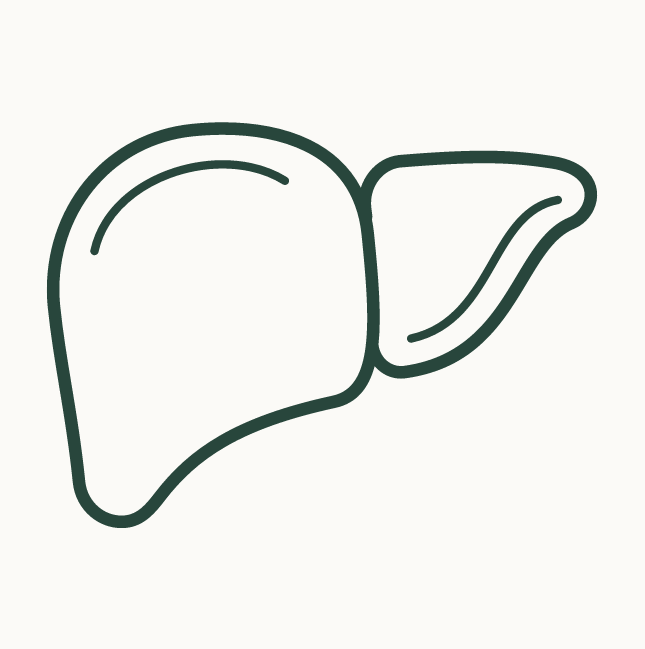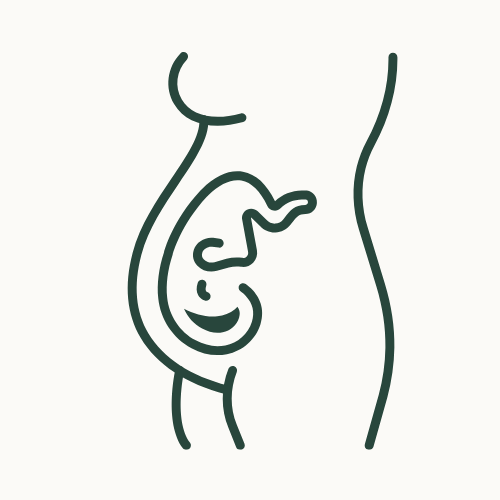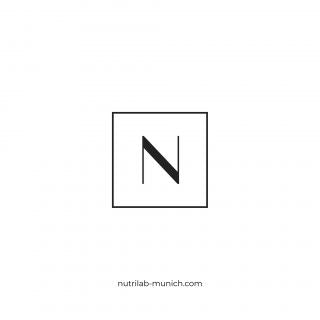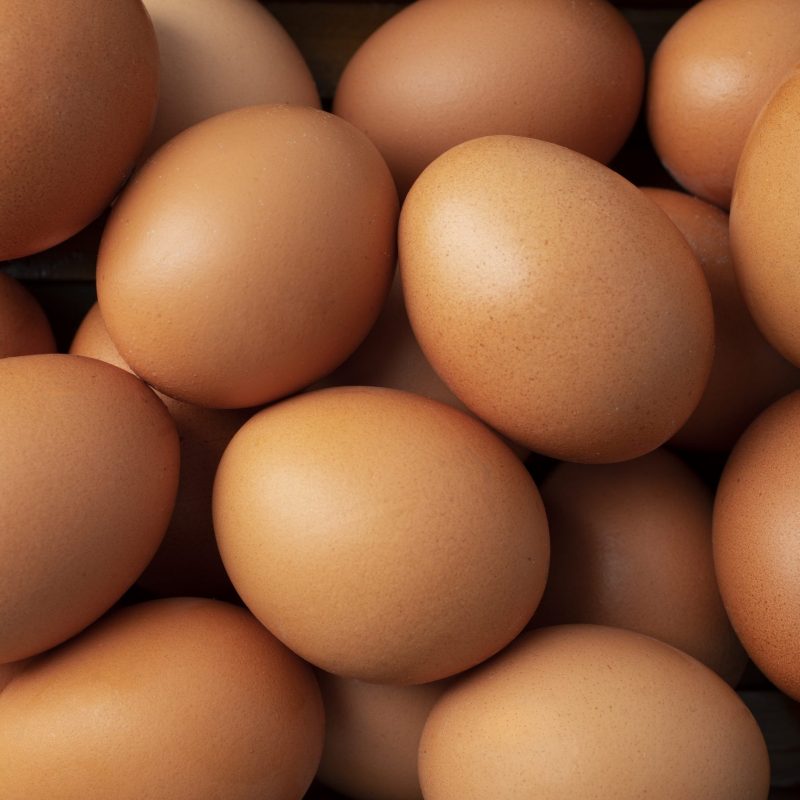
NUTRIENT PRESENTATION
choline
Contained in: animal foods (liver, eggs, beef).
Form: VitaCholine®, choline bitartrate
Origin: L-tartaric acid
Supplier: Balchem
Place of manufacture: Missouri, United States
Function: Methyl group transmitter
Risk groups: pregnancy, vegans, vegetarians, alcoholism, unbalanced diet.
ADVANTAGES
Choline Facts & Knowledge
The supply in Germany according to a recent study in 2022: 93% of women do not reach the daily intake of 400mg recommended by the European Food Safety Authority (EFSA) [3].
CHOLINE AND ITS FUNCTIONS [9]
- Although choline can be synthesized by the human body, this synthesis may be insufficient, making choline an essential part of the diet.
- Choline is usually present in food and in the body in the form of phospholipids, also known as lecithin. Choline is bound to fatty acids.
- Choline is an essential component of some phospholipids (structure of cell membranes, mitochondrial membranes and lipoproteins).
- Formation of S-adenosylmethionine: Choline serves as a source for this universal methyl donor.
- Formation of neurotransmitters: Choline produces acetylcholine, which is important for nerve-muscle communication, memory and neuronal development.
CHOLINE IN PREGNANCY
- During pregnancy, the additional requirement increases to 480 mg/day [8].
- The European Food Safety Authority (EFSA) recently published an approved health claim for choline, recognizing its role in prenatal and early childhood nutrition [2, 8].
- Studies suggest that prenatal choline supplementation improves infant cognitive outcomes via improved methyl group supply [4], neurodevelopment and placental function [5, 8].
ACCEPTED HEALTH CLAIMS
- contributes to normal homocysteine metabolism
- contributes to normal fat metabolism
- contributes to the maintenance of normal liver function
PLANT-BASED DIET
- Since choline is mainly found in animal foods, vegans and vegetarians are probably at even higher risk for low choline intake [3].
- However, in 2021, scientists at the University of Lübeck examined the choline supply of 283 women in the third trimester of pregnancy. 93 percent of the women consumed too little choline in their diet. The international recommendation for pregnant women is 480 mg per day. The choline intake of the participants in the Lübeck study who ate animal products was on average 270 mg per day, while that of the vegetarians and vegans was 205 mg per day [3].
NUTRILAB'S CHOLIN
- VitaCholine® has been named Ingredient of the Year 2022 by NutraIngredients USA based on the latest research in maternal choline supplementation.
biomarkers
Note: Currently available data do not allow conclusions to be drawn regarding a dose-response relationship between choline intake or choline status and plasma choline concentration.
The methyl metabolite betaine, a choline metabolite, appears to be the most sensitive to choline supplementation according to current data and could therefore serve as a future indicator or biomarker for additional choline intake. However, further studies will have to confirm this [5, 9].
~ 17 µmol/l
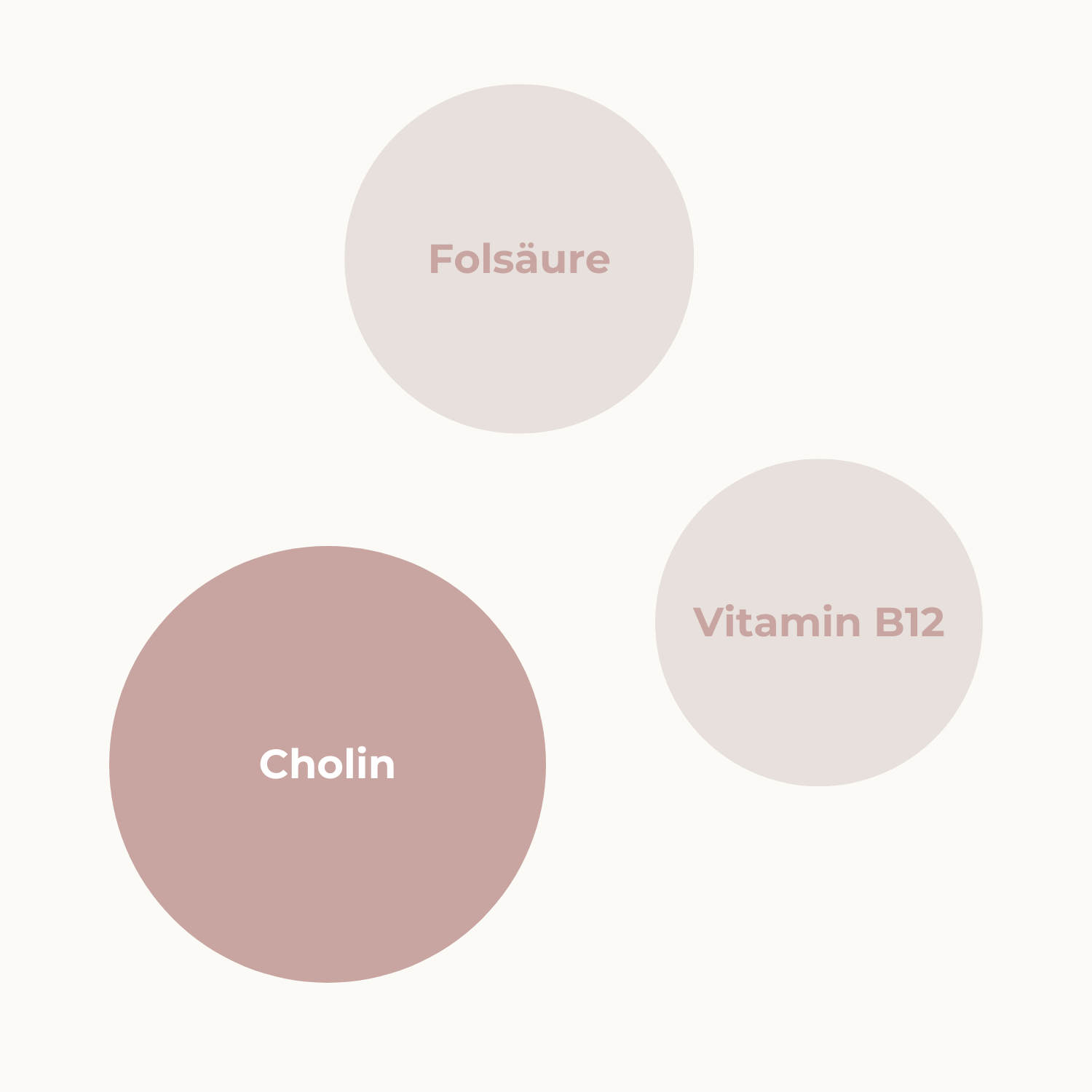
COLLEAGUES
Who does Choline work with?
Choline works with folic acid and vitamin B12 to provide methyl groups for numerous biological processes.
FOR FURTHER READING
Evidence-based formulations
We use nutrients that are backed by a comprehensive body of research that is growing daily.


